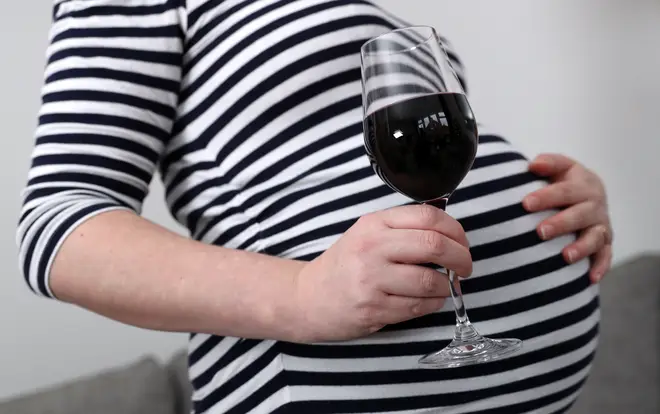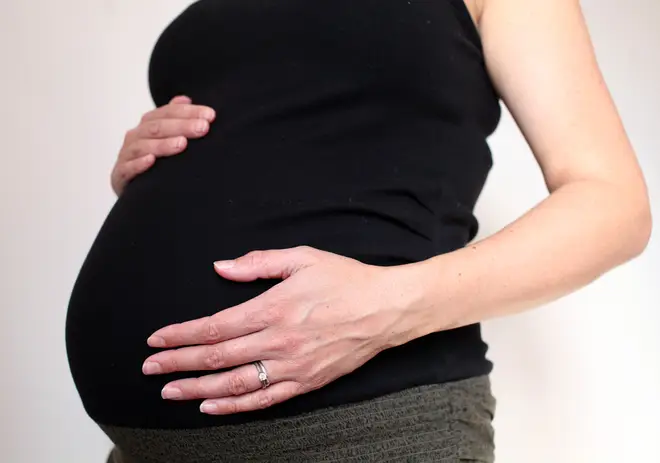
Nick Abbot 10pm - 1am
16 September 2020, 08:08 | Updated: 16 September 2020, 09:16

A single glass of wine during the first week of pregnancy could be noted on a mother's medical file under controversial new plans.
A key public health advisory body says they want all alcohol consumed by expectant mums recorded, regardless of whether they consent.
The National Institute for Health and Care Excellence (Nice) is conducting a consultation which has proposed guidelines, already adopted in Scotland, that include the mandatory recording of all alcohol consumed by expectant mothers.
The recommendation is based on identifying those children at risk of foetal alcohol spectrum disorder, which can cause physical and behavioural problems.
Learning and research has found that those exposed to alcohol in the womb were more likely to have impaired cognitive issues.
But there have been warnings the move may infringe on data privacy rights, with the British Pregnancy Advisory Service (BPAS) saying it would violate the EU's general data protection regulations.
The charity, which provides assistance to about 100,000 women each year, also said there had been "no compelling research showing harm at lower levels" of alcohol consumption.
Read more: Eat out to help out scheme pushes UK inflation down to 0.2 per cent

Read more: Testing, testing...Govt announces urgent review after LBC probe
BPAS spokeswoman Clare Murphy said: "Women do not lose their right to medical confidentiality simply because they are pregnant. Most women report drinking very little alcohol in pregnancy if any at all, even if they may have drunk before a positive pregnancy test."
Rebecca Brione from charity Birthrights, which promotes human rights in maternity care, said it was "unacceptable to propose such measures without any assessment of the impact on women and pregnant people".
Aston University's Pam Lowe said the General Medical Council guidance on confidentiality suggests sharing information without informed consent might be justified if not doing so placed others at risk of death or serious harm..
However, the senior lecturer in sociology at the university, added: "Although foetal alcohol spectrum disorder can have serious neurodevelopmental effects, the shared information makes no difference to the level of harm. Consequently, alcohol consumption during pregnancy does not meet the public interest threshold of harm."
Nice is proposing that women at antenatal appointments are always asked about the number and types of alcoholic drinks that they have consumed, as well as the pattern and frequency of drinking, The Times reports.
The information would then be noted in maternity records and transferred to the child’s health records after birth.
The Nice consultation is expected to be published on January 26.